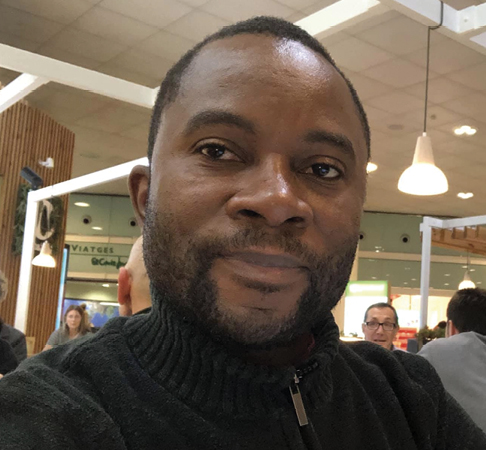The Atlantic Fellows programmes and Fellows-led initiatives promote health equity for socially excluded persons across the world. Mental health issues that result from forced displacement are increasing as the number of people being pushed out of their countries multiplies, with over 45 million refugees, asylum seekers, and internally displaced persons in Africa. Of the total number of asylum seekers and refugees on the African continent and specifically sub-Saharan Africa, WHO estimates that 8 out of every 10 refugees live with one or more forms of mental health issue. Interventions to prevent and promote mental health among refugees are limited. To avoid overburdening host countries’ health systems and stop refugees dying prematurely, we need to encourage preventive initiatives.
Our work
With funding support from the Atlantic Institute, our advocacy project aims to raise awareness about refugees’ mental health, working with groups of refugee leaders in South Africa and Uganda. Our first task was to discover whether the refugee community was aware of issues associated with mental health and their response to such demands. We wanted to learn from them about the resources freely available in the community. After speaking to the leaders of different refugee organizations, we shifted our project’s objectives due to the realities on the ground to focus on the root causes of mental health issues, their understanding and identifying symptoms and perceived barriers to addressing the problems.
Our team
Drawn from different backgrounds, we had one Atlantic Fellow with lived experiences of forced migration, two public health specialists, a neuropsychologist, an artist and a journalist. We first met at Creative Brain Week at Trinity College Dublin, an event initiated by one of the Atlantic Fellows programs, the Global Brain Health Institute. While we struggled with issues of time zones and load shedding in South Africa, our conversation around the mental health and well-being of refugees connected us on our own migration journeys, currently and historically.
Two Fellows from academia and public health focused on structured, clinical systems, skills that were complemented by the artist and the journalist, who helped create space to teach about the less appreciated aspects of society: nature, music and the concept of the person versus the being. The neuropsychologist Fellow created a space for the integration of structured concepts with the natural concept and her own migration journey allowed for us to shift how we perceive migration in the future. Our public health nurse provided governance guidance and created a good work culture, with a sense of accountability and an appreciation for caring for the other.
Lessons learned
We learned that music and art were good conversation starters and allowed people to express themselves with language and cultural safety. Africans, in particular, have a rich culture attached to song, poetry and storytelling, all of which are incredibly valuable for trauma debriefing and healing. This also contributes to destigmatising the concept of mental health, which, according to the refugee leaders, was sometimes associated with witchcraft depending on different cultural and religious perspectives. Conversations led by Refugee-Led Organisations (RLO) encouraged openness; they told us that issues they had identified as leading to poor mental health symptoms were acts that retraumatise a refugee, such as discrimination, the denial of documentation, jobs, education and health care services. As these acts mounted, this could lead to attempted suicide or dying by suicide. Similar root causes and symptoms have been reported in previous studies with refugee mental health issues (Luberenga et al., 2025)(Forray et al., 2024)(Thela et al., 2017)(Schockaert et al., 2020). We also learned that there is a rich depository of knowledge and skills among the refugee community, but they need a platform and a coordinated process to bring it to play.
We found that the mental health and well-being of refugees in Uganda and South Africa are poorly recognised by governments, civilians and refugees alike. At a policy level, there is little consideration for the mental health and well-being of refugees. On looking at policies and other relevant documentation, the message seems to be that forced migrants exist with one basic need – the need for shelter. But refugees also frequently face exclusion from the broader social determinants of health.
Through our conversation with RLO leaders, we have identified that culture plays a key role in limiting how refugees understand and respond to mental health risks and needs, with barriers at all levels. Refugees have a myriad of complex issues that combine on some levels to create a harmful culture. From sexual violence, and a normalization of poor social culture including alcohol abuse and crime, whilst also needing to navigate issues around governance, politics and other barriers.
Our conclusion
The WHO needs to make refugee mental health more of a priority, raise awareness of the symptoms, causes and key determinants for their mental health issues. In collaboration with agencies like the UNHCR, IOM, and the Red Cross, host countries can contribute toward addressing this public health threat. Conversations that take the form of storytelling and participatory action research, such as co-designing and co-implementing preventive interventions, would also be key to tackling the risks of refugees’ mental health conditions remaining untreated.






.png)

